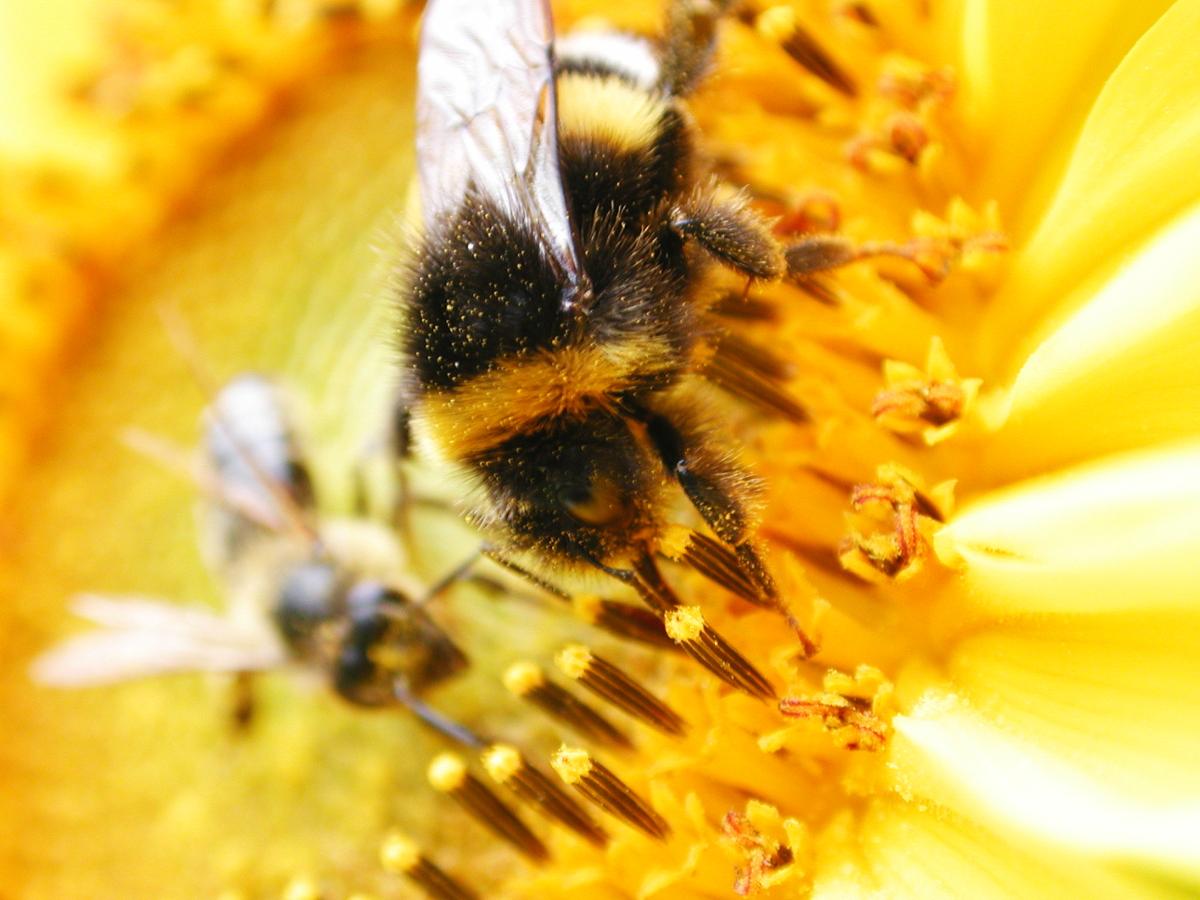D: Brr! All this chilly December weather is making me really miss the summer. Just think about how pleasant the summertime is—the sun is shining, the birds are chirping, the bees are buzzing…
Y: Well, sure, Don. Except that when the sun wasn’t shining, the bees weren’t buzzing.
D: What on Earth do you mean, Yaël? When was the sun not shining? Oh! Do you mean the Great American Eclipse of 2017? Are you saying that something happened to the bees when the sun went behind the moon?
Y: Yep. A study shared some fascinating news: as the moon slowly crossed the sun, the light dimmed and the temperature cooled, and the bees just went along like normal. But once the darkness of the totality hit, there was a change. All of a sudden, the bees stopped flying. When the moon began to move away, the bees started buzzing again. Scientists think that it was the change in light intensity that affected flight activity.
D: I’ve never heard of this before. Were researchers staked out, watching what the bees were up to?
Y: It’s actually one of the first formal studies of this topic. And while researchers did the analysis, it was citizen scientists—and especially hundreds of schoolkids—responsible for the data. They set out small microphones in 11 flower patches in Oregon, Idaho, and Missouri and recorded the bees’ sounds.
D: That’s amazing. Do we know what kinds of bees went quiet?
Y: Nope! So further study is needed. As we continue to explore how other species experience eclipses, bees could provide some fascinating information. And that’s the latest buzz.










